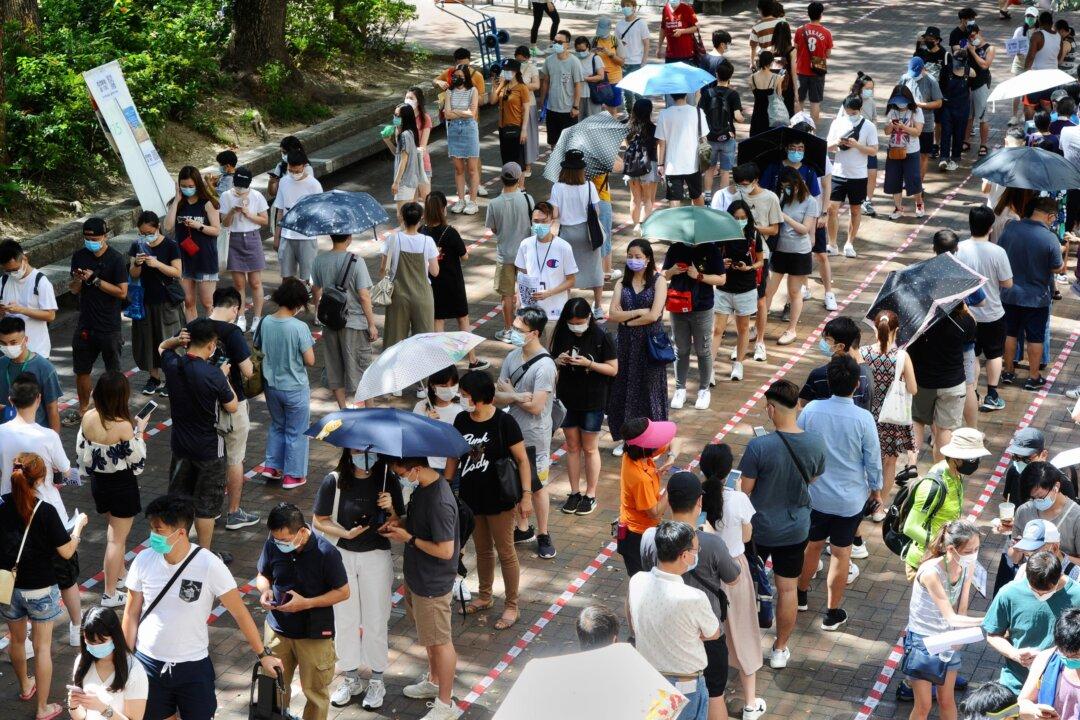Beijing and the pro-establishment Hong Kong government have claimed that the city’s pro-democracy opposition camp may have violated the communist party’s newly-implemented national security law by holding their primary polls over the weekend.
Hong Kong leader Carrie Lam in a press conference on Monday accused the primary elections as “causing unfairness” to the legislative elections in September and warned people not to take part in activities that could “interfere, disrupt, [or] cause confusion” to the upcoming elections.





